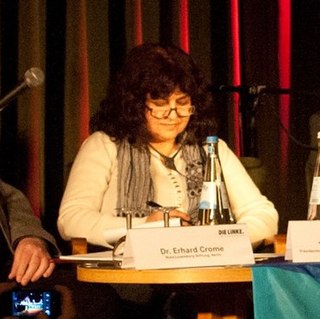A Quote by Gene Roddenberry
For Star Trek proves, as faulty as individual episodes could be, is that the much-maligned common man and common woman has an enormous hunger for brotherhood. They are ready for the twenty-third century now, and they are light-years ahead of their petty governments and their visionless leaders.
Related Quotes
We have a common enemy. We have this in common: We have a common oppressor, a common exploiter, and a common discriminator. But once we all realize that we have this common enemy, then we unite on the basis of what we have in common. And what we have foremost in common is that enemy - the white man. He's an enemy to all of us. I know some of you all think that some of them aren't enemies. Time will tell.
As I stood in the booth chatting to people, it occurred to me that besides good racing, the Crew Classic provided an ideal setting for the brotherhood of rowing. The brotherhood connects real rowing people. Teammates who haven't visited in years came together, and so do former opponents who once battled like mortal enemies. Suddenly they discovered they have much more in common. Long live the brotherhood of rowing.
What binds us together is not common education, common race, common income levels, common politics, common nationality, common accents, common jobs, or anything else of that sort. Christians come together because they have all been loved by Jesus himself. They are a band of natural enemies who love one another for Jesus' sake.



































